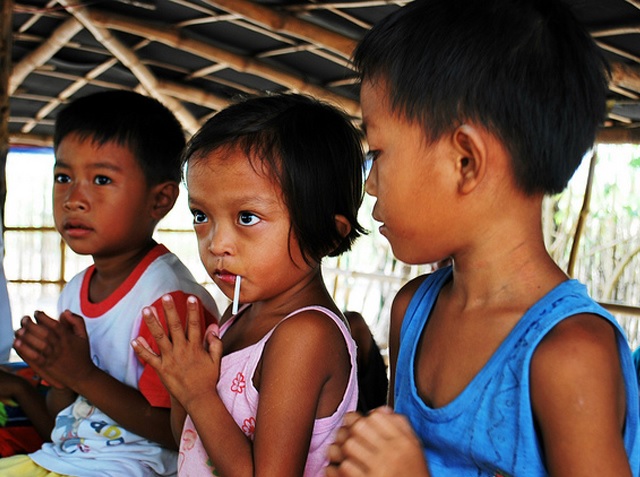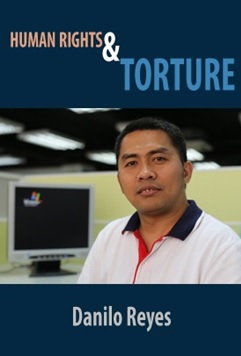
Photograph by CJ Chanco ©
Note: this article was first published in latest issue of the Torture: Asian and Global Perspectives (Torture Magazine)
by Danilo Reyes
In August 2014, police arrested a Chinese national caught transporting ten kilos of high grade shabu (poor man’s cocaine) in his car in Quezon City. The suspect was visibly having difficulty understanding English or Filipino when authorities spoke to him, as seen on TV cameras covering his arrest.
On the scene were journalists, invited by police and politicians. Inviting journalists to cover onsite is common for policemen and politicians once they arrest suspects linked to drug syndicates. Press conferences also held on the scene for publicity purposes.
With the television cameras rolling behind Herbert Bautista, mayor of Quezon City, the suspect could clearly be seen sitting in his car.
As Bautista was talking to the reporters, the drug suspect rose from his seat, positioned himself just beside Bautista’s back and smiled at the cameras. Startled, Bautista gave him a high five.
Yet the reporters did not like what they saw, questioning Bautista in disgust: “Why would you allow that, Mayor? It seems he is disrespecting you”. It was here that Bautista’s reaction dramatically changed—from being playful towards the suspect, to aggressive. In view of the policemen, journalists and television cameras, he started questioning the suspect amusing the reporters waiting to witness exclusive stories unfolding.
“Where did you get this?” Bautista asked the suspect. Vague hand signals were given in response, signalling that the suspect either could not hear or could not understand. Bautista raised his voice: “You can’t hear me?” and slapped the suspect twice.
After the incident, Bautista explained his actions on national television: “I realised, he is a Chinese national who should respect authorities and the law”. Reports on Bautista’s treatment of the individual did not mention he had hit the suspect. His actions were described as if they were the trivial acts of a public official, like ‘sinampal (slapped)’, nakatikim ng sampal (deserved a slap)’, and the aggression ignored.
But why inflict pain and humiliate the suspect? There is already clear and strong evidence against the suspect. Clearly Bautista’s purpose in hitting was not to extract confession from him—because the evidence was already on hand — but rather to show to the journalists TV reporters and the public, that criminals must be seen to be punished in public and that he, as Mayor, deserves respect.
What Bautista did to a Chinese drug suspect, and his probable motives in doing so, is similar to how Alfredo Lim, former mayor of Manila, explained his actions of torturing a rape suspect in June 2013 in full view of the police, journalists and the public.
 Lim believed his actions were fully justified. In his view, what he did was not torture (despite clear evidence he was hurting the suspect as he questioned him). He said there was no need for him to extract confession from the suspect because he has been positively identified by a witness as the real culprit.
Lim believed his actions were fully justified. In his view, what he did was not torture (despite clear evidence he was hurting the suspect as he questioned him). He said there was no need for him to extract confession from the suspect because he has been positively identified by a witness as the real culprit.
But unlike Lim, Bautista admitted and apologised on television to the Commission on Human Rights (CHR) and the Filipino youth, saying that “My apology to the CHR, not to the suspect, to Mrs. Etta (Rosales), because I did it. It is not my character to hurt people. To the youth, what I did was not a good example of a leader”.
Clearly, Bautista was remorseful, not because he knowingly and in view of the public breached the law. The Anti-torture law makes it a crime to inflict pain, physical or psychological, to anyone for purposes of extracting information. When Bautista began questioning the suspect: “Where did you get this?” he was in effect extracting a confession. As a public official this law applies to him.
Bautista knows full well how to capture the sympathy of the public so that his action of hitting the suspect would be acceptable in their eyes. Just like in Lim’s case, where the public were angry at the suspect for raping and robbing a woman, Bautista knew many would be angered by the trade in illegal drugs.
The CHR, who knew full well of the allegations against Lim and Bautista, did not bring charges for violation of the Anti-Torture Act against them.
Furthermore, Bautista understood and made use of the Filipino’s disgust and of its territorial thinking against foreign nationals committing crimes. The Filipinos views against taga labas (foreigner), hindi taga rito (had no roots in the community), and estranghero (stranger) are very negative when they break laws.
The suspect’s country of origin, China, to whom the Philippine government has had protracted diplomatic dispute over the West Philippine Sea, further fuels anger and hatred in support of Bautista. Such anger and hatred often overwhelms police and politicians. They lose control of themselves.
As Bautista claims, it is not in his character to hurt people. After all, he was a well-known Filipino film actor and comedian before he entered politics. But we also see that clearly anyone, just like him, is capable of hurting another human being.
Other politicians, however, either did not approve of Bautista apologising, or have suggested that him slapping the suspect was not enough.
One of these is Rodrigo Duterte, mayor of Davao City, who said, “What you did was right. It was not enough though. You could have kicked him, too. [Had it happened in Davao City] I would have carried him onto a boat and fed him to fish in the Davao gulf. The fish do not have anything to eat there.” Duterte is known for his support to eliminate drug offenders.
Even the television anchor who interviewed Bautista expressed support for his actions. Without any pretension, the anchor suggested that, “Next time, why don’t you call somebody to do [the torture] for you?” To which Bautista readily replied, “Yes, there were many people who suggested that to me also.”
Clearly is does not enter either the journalist nor Bautista’s minds that Bautista had committed a serious criminal offence. To even entertain the idea that, next time, Bautista could ask somebody to hurt another person for him, is sheer contempt of the law. Why is there clear impunity and understanding of such an act of violence?
The conversations following this incident show that torture and associated acts of violence are not yet seen as a severe criminal offence in the Philippines. On paper, the law says torture is wrong; however, it is clear that the journalist, politicians and the public have a certain level of expectation wherein torture is and can be used.
Click here to read the latest issue of the magazine.
Torture: Asian and Global Perspectives is a bi-monthly magazine which focuses on torture and its related issues globally. Writers interested in having their research on this subject published may submit their articles to torturemag@ahrc.asia
( Danilo Reyes earned his master in law from the University of Hong Kong. Currently he is the deputy executive director of the Asian Human Rights Commission)